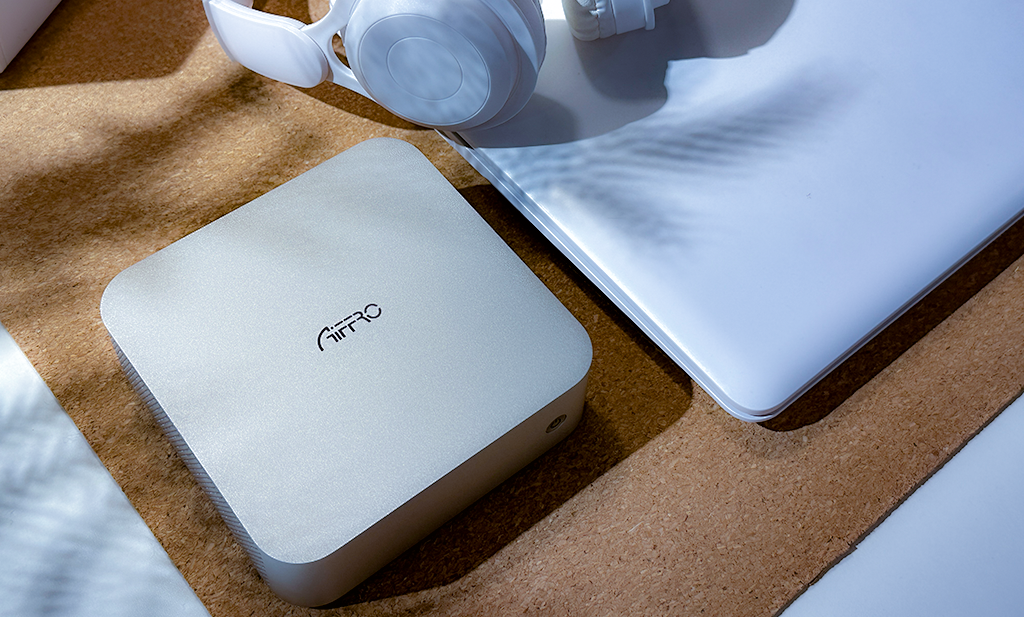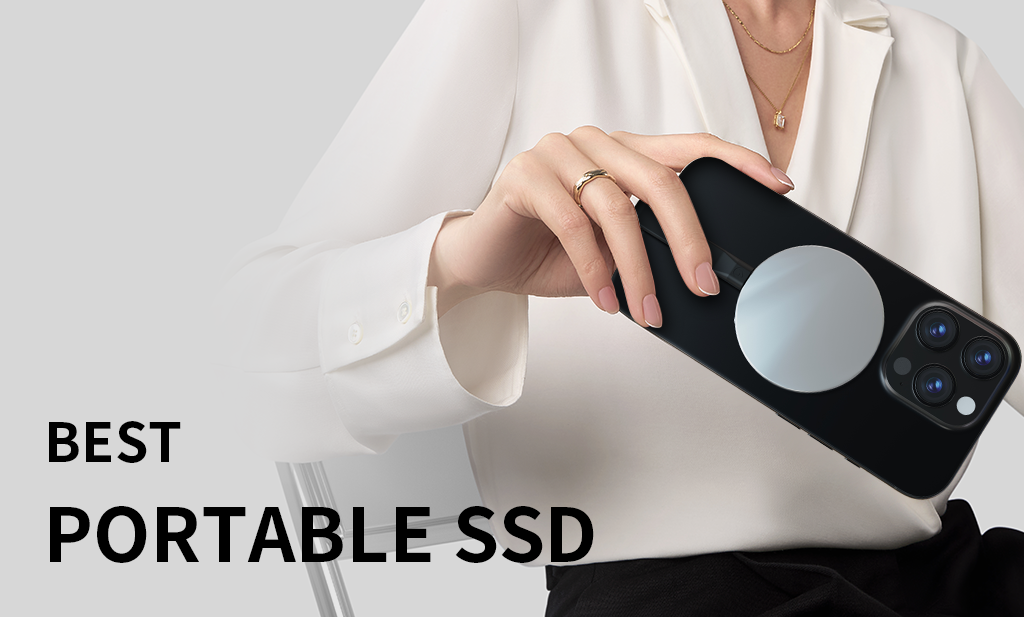تخدم أجهزة NAS وأجهزة الكمبيوتر الصغيرة أغراضًا مختلفة وتلبي احتياجات مختلف المستهلكين. تُعدّ أجهزة NAS وسيلة تخزين مركزية فعّالة وآمنة، بينما تُعدّ أجهزة الكمبيوتر الصغيرة مثاليةً لاستخدامات حوسبة متنوعة.
يحتاج كل فرد وشركة إلى حلول تخزين ومشاركة بيانات لأداء مهام الكمبيوتر اليومية. تتطلب التكنولوجيا الحديثة حلولاً ذكية، صغيرة الحجم وقابلة للحمل، وتوفر الراحة للمستخدمين. يُعدّ التخزين الشبكي (NAS) وأجهزة الكمبيوتر الصغيرة منتجين يُلبّيان متطلبات التكنولوجيا الحديثة. تختلف أجهزة التخزين الشبكي (NAS) وأجهزة الكمبيوتر الصغيرة في أغراضها، ولكن غالبًا ما يُقارن بينهما نظرًا لصغر حجمهما وقدراتهما الحاسوبية.
قبل الاختيار بين جهاز NAS وجهاز كمبيوتر صغير، ينبغي فهم خصائص كل منهما والغرض منه. المعرفة الصحيحة تساعدك في اختيار الجهاز المناسب لاحتياجاتك. تُجري Aiffro هنا مقارنة مفصلة بين أجهزة NAS وأجهزة الكمبيوتر الصغيرة لتسليط الضوء على وظائفها وفوائدها.
ما هو NAS؟
يُوصف التخزين المتصل بالشبكة باختصار باسم NAS، وهو جهاز تخزين يُستخدم لتخزين البيانات في موقع مركزي. يسمح هذا النظام لعدة مستخدمين أو للشبكة بأكملها بالوصول إلى البيانات المخزنة ومشاركتها مع أي شخص بحرية وأمان. بفضل شموليته، يُعدّ هذا النظام حل التخزين الأمثل للاستخدام الشخصي للأفراد والشركات والمؤسسات الكبيرة.
يحتوي نظام NAS على نظام تشغيل خاص به، ولكن يمكن زيادة سعة التخزين عن طريق تكوين محركات أقراص متعددة مثل SSD وHDD. توفر بعض الحلول دمجًا بين كلا المحركين لزيادة سعة التخزين بشكل أكبر.
إنها قادرة على تلبية احتياجات المؤسسات الكبيرة من حيث الموثوقية وقابلية التوسع. بفضل ميزة RAID (مجموعة الأقراص المستقلة المتكررة)، توفر هذه الأقراص حماية للبيانات وإمكانية توسيع سعة التخزين للمؤسسات الكبيرة.
مزايا NAS
- نظام تخزين موثوق يحافظ على البيانات آمنة ومأمونة.
- يمكن لمستخدمين متعددين تخزين واسترجاع البيانات من موقع واحد.
- من السهل إعداده واستخدامه، ولكن الإعدادات المتقدمة قد تحتاج إلى مساعدة من قسم تكنولوجيا المعلومات.
- يسمح لمستخدمين وأعضاء متعددين بالوصول إلى الملفات ومشاركتها عبر الشبكة.
- تتكامل بعض أجهزة NAS مع الخدمات السحابية للنسخ الاحتياطي والمزامنة.
- يعزز التعاون من خلال تمكين مشاركة الملفات عبر الأجهزة عن بعد.
- يدعم RAID لحماية البيانات والتكرار.
- متوافق مع مختلف التطبيقات للحصول على وظائف إضافية.
- يعمل كمركز مركزي لإدارة الملفات والنسخ الاحتياطي بسهولة.
- تخزين قابل للتوسع - قم بالتوسع عن طريق إضافة المزيد من محركات الأقراص حسب الحاجة.
- أجهزة مثل Aiffro K100 NAS يدعم توسيع NVMe SSD للاستخدام على المدى الطويل.
- مُصمم للعمل على مدار الساعة طوال أيام الأسبوع مع الحد الأدنى من استهلاك الطاقة.
الاستخدامات الشائعة لـ NAS
- الاستخدام الشخصي: النسخ الاحتياطي، وبث الوسائط، ومشاركة الملفات.
- التخزين المنزلي: يوفر الخادم السحابي وخادم الوسائط للأجهزة المختلفة إمكانية الوصول بسهولة إلى مكتبات الوسائط والصور والمستندات
- الشركات الصغيرة: إدارة المستندات والتعاون بين الفريق والسماح بتخزين البيانات ومشاركتها عن بعد بين الفرق والأقسام لتحقيق عمل فعال
- تخزين المراقبة: تخزين لقطات من كاميرات المراقبة الأمنية.
ما هو الكمبيوتر المصغر؟
يستطيع الحاسوب الشخصي الصغير القيام بالمهام الاعتيادية التي يؤديها الحاسوب المكتبي. تصميمه الصغير لا يؤثر على قدرته على مساعدة المستخدمين في مهامهم الحاسوبية اليومية، مثل تطبيقات المكتب وتصفح الإنترنت.
حجمها الصغير يسمح لها باستخدام مكونات ذات طاقة أقل مما يجعلها سهلة النقل وتوفر تشغيلًا أكثر هدوءًا وكفاءة في استخدام الطاقة من نظيراتها كاملة الحجم.
يتطلب الكمبيوتر المصغر معالجًا وذاكرة ليعمل كجهاز كمبيوتر تقليدي. لا يخزن أي شيء مثل NAS، ولكنه يحتاج إلى مكونات تخزين لهذه المهمة. يجب أن يكون لديك شاشات ولوحات مفاتيح ليعمل الكمبيوتر المصغر بكفاءة.
فوائد أجهزة الكمبيوتر الصغيرة
- يتطلب الحد الأدنى من المساحة.
- محمول نظرًا لخفة وزنه لمهام الكمبيوتر في الحافلة أو الطائرة
- التوافق مع أنظمة التشغيل القياسية
- يستهلك طاقة أقل من أجهزة الكمبيوتر المكتبية كاملة الحجم.
- أكثر تكلفة من أنظمة سطح المكتب المتطورة.
- دعم التخزين الخارجي والتوسعة
- يسمح بتثبيت ترقيات إضافية للبرامج والأجهزة.
- إنها أكثر تكلفة من الوحدات التقليدية
- مناسب للطلاب حيث يسهل حمله في الفصول الدراسية لتدوين الملاحظات والبحث في الموضوع أثناء الفصول الدراسية
- يمكن استخدامه لمجموعة متنوعة من المهام من استخدام تطبيقات Microsoft إلى تصفح الإنترنت والتحقق من رسائل البريد الإلكتروني إلى كتابة المدونات
الاستخدامات الشائعة لجهاز كمبيوتر صغير
- العمل المكتبي: تحرير المستندات، وتصفح الويب، والتواصل.
- مركز الوسائط: بث المحتوى
- الألعاب: ألعاب خفيفة ومحاكاة.
- تطبيقات الأعمال: أنظمة نقاط البيع (POS) والأكشاك.
NAS مقابل جهاز كمبيوتر صغير
تتمتع أجهزة NA وأجهزة الكمبيوتر الصغيرة بميزات ووظائف مميزة خاصة بها، ولكن بالنسبة لأولئك الذين يريدون مقارنة بين الاثنين، فها هي.
التصميم مع الغرض
صُمم نظام NAS أساسًا للتخزين الشبكي ومشاركة الملفات بأمان وموثوقية عبر الشبكة. في المقابل، يعمل الكمبيوتر الشخصي الصغير كجهاز حاسوب صغير الحجم يُمكّنه من أداء مهام متنوعة.
الأداء والأجهزة
تتميز أنظمة NAS بقدرة معالجة محدودة نظرًا لتركيزها على إضافة عدة حجرات محركات أقراص مع تكوينات RAID لتوفير مساحة تخزين واسعة وتكرار للبيانات. ومع ذلك، تتميز معالجاتها بكفاءة استهلاك الطاقة ومناسبة لتخزين الملفات والتطبيقات الأساسية. تتميز أجهزة الكمبيوتر الصغيرة بمعالجات قوية ذات سعة ذاكرة وصول عشوائي (RAM) أكبر للتعامل مع خدمات إضافية مقارنةً بتخزين الملفات. ومع ذلك، فإن سعة التخزين الداخلية محدودة، مما يُمثل عيبًا.
نظام التشغيل والبرمجيات
أجهزة NAS مزودة بنظام تشغيل خاص بها، مثل Synology DSM أو QNAP QTS، لتوفير تخزين أفضل ووصول عن بُعد. تعمل أجهزة الكمبيوتر الصغيرة بأنظمة تشغيل قياسية، من Windows وLinux إلى macOS.
سعة التخزين والتوسع
تتميز وحدات NAS بسعة تخزين عالية وحجرات أقراص متعددة لمزيد من التوسعة. تستخدم أجهزة الكمبيوتر الصغيرة أقراص SSD داخلية، لكن سعة التخزين فيها ليست مثالية، وتتطلب أقراصًا خارجية لتحقيق السعة المطلوبة.
استهلاك الطاقة
يستهلك نظام NAS طاقة أقل بفضل عمله المُركّز على التخزين، مما يجعله فعالاً من حيث التكلفة للاستخدام على مدار الساعة طوال أيام الأسبوع. تستهلك أجهزة الكمبيوتر الصغيرة طاقة أكبر بفضل مكوناتها الأكثر قوة، وهي غير مناسبة للاستخدام الدائم.
ميزات الأمان
أجهزة NAS أكثر أمانًا من أجهزة الكمبيوتر الصغيرة بفضل تشفيرها المدمج وتقنية RAID. تعتمد أجهزة الكمبيوتر الصغيرة على ميزات أمان نظام التشغيل التقليدية، مثل مكافحة الفيروسات وحماية جدار الحماية.
جهاز Aiffro K100 All SSD NAS: أفضل منتج NAS لاحتياجات التخزين المنزلية والتجارية
عند مقارنة أجهزة NAS مع أجهزة الكمبيوتر الصغيرة، يتميز جهاز Aiffro K100 NAS بجمعه بين وظائف جهاز تخزين الشبكة وإمكانيات الكمبيوتر الصغير، لا سيما بفضل وحدة تخزين SSD ومعالج Intel N100. في حين توفر أجهزة الكمبيوتر الصغيرة إمكانيات حوسبة عامة، يُستخدم جهاز K100 للوصول إلى البيانات ومشاركتها مركزيًا وبسرعة عالية.
ميزات وفوائد Aiffro K100 NAS
- عامل شكل صغير لسهولة وضعه.
- يستخدم M.2 محركات أقراص SSD NVMe لنقل البيانات بسرعة.
- إنه يوفر قوة المعالجة بفضل معالج Intel N100 لأنظمة التشغيل والتطبيقات المتنوعة.
- احصل على سرعات قراءة وكتابة أسرع.
- مجهز بمنفذ Ethernet 2.5GbE للوصول إلى بيانات الشبكة.
- يدعم تكوينات RAID لحماية البيانات.
- يوفر الوصول عن بعد إلى البيانات المخزنة
- إنه يدعم أنظمة تشغيل مختلفة، من Windows وLinux إلى TrueNAS وFreeNAS.
- يستهلك طاقة أقل
- يساعد في التعاون بين الفريق عن بعد
في حين يمكن استخدام العديد من أجهزة الكمبيوتر الصغيرة لوظائف NAS، تم تصميم Aiffro K100 من الأساس ليكون NAS.
خاتمة
تتميز أجهزة NAS وأجهزة الكمبيوتر الصغيرة بمزايا فريدة في خدمة المجتمع بطرق مختلفة. فهي موثوقة وفعالة في توفير حلول تخزين ومشاركة بيانات آمنة ومركزية.
أجهزة الكمبيوتر الصغيرة هي نسخ مصغرة من أجهزة الكمبيوتر التقليدية، تُستخدم لأداء مهام الكمبيوتر اليومية، مثل تصفح الإنترنت والعمل المكتبي. يساعد فهم الاختلافات بينهما في اختيار الجهاز المناسب لمتطلباتك الشخصية أو التجارية.





اترك تعليقًا
This site is protected by hCaptcha and the hCaptcha Privacy Policy and Terms of Service apply.